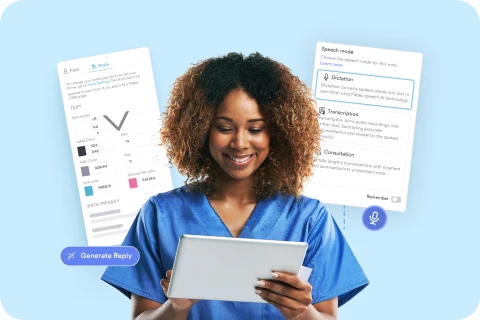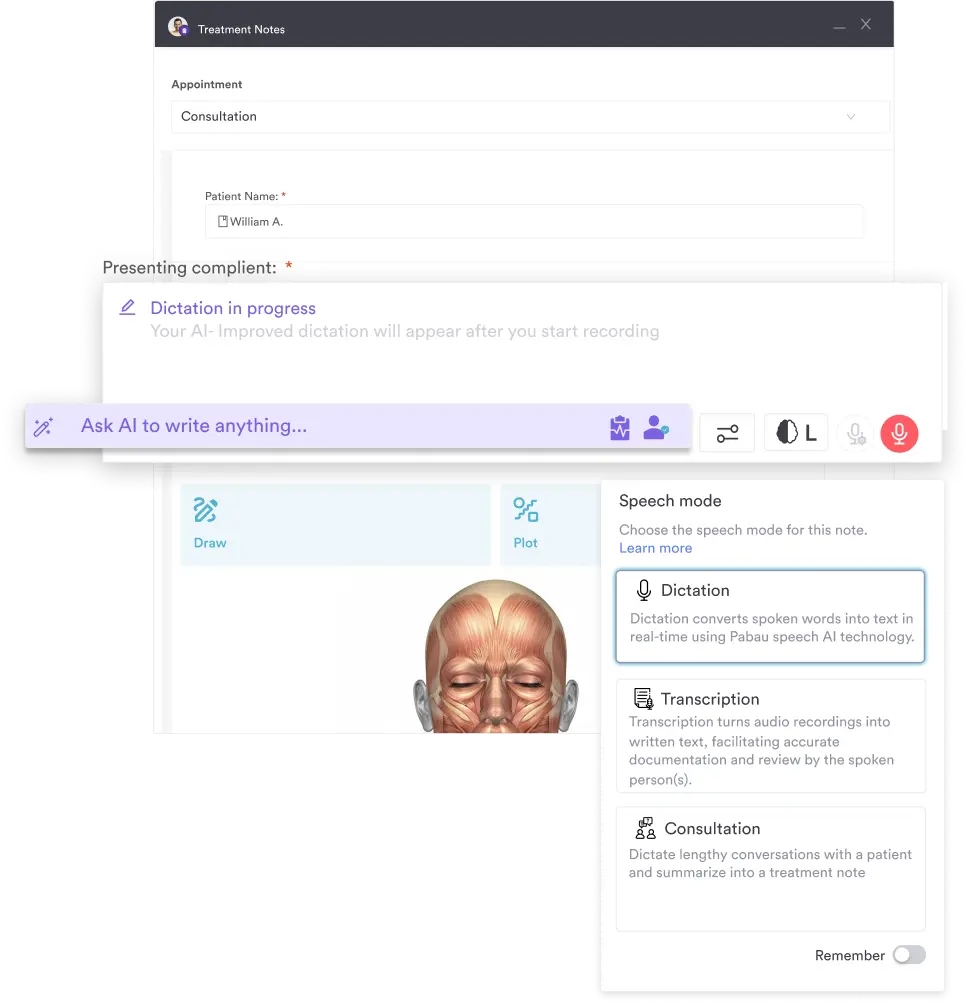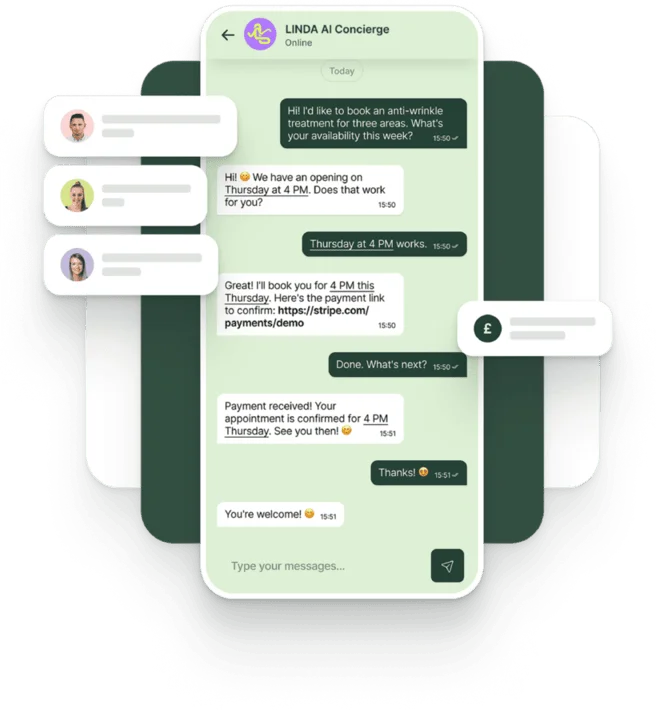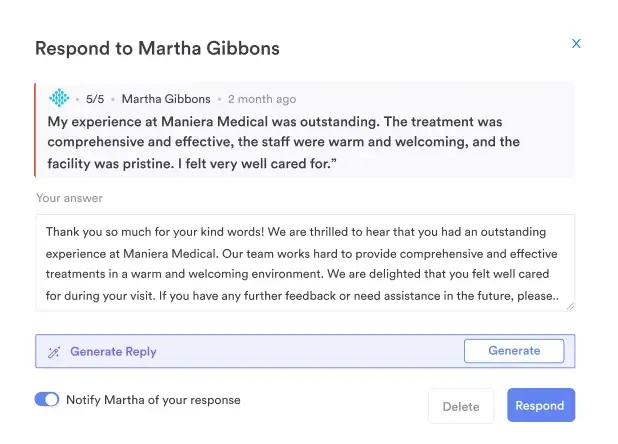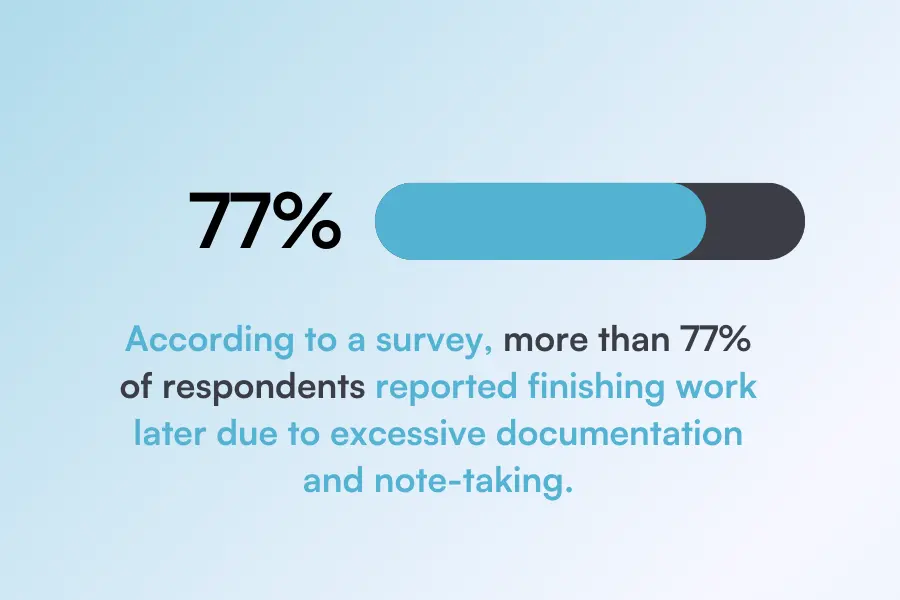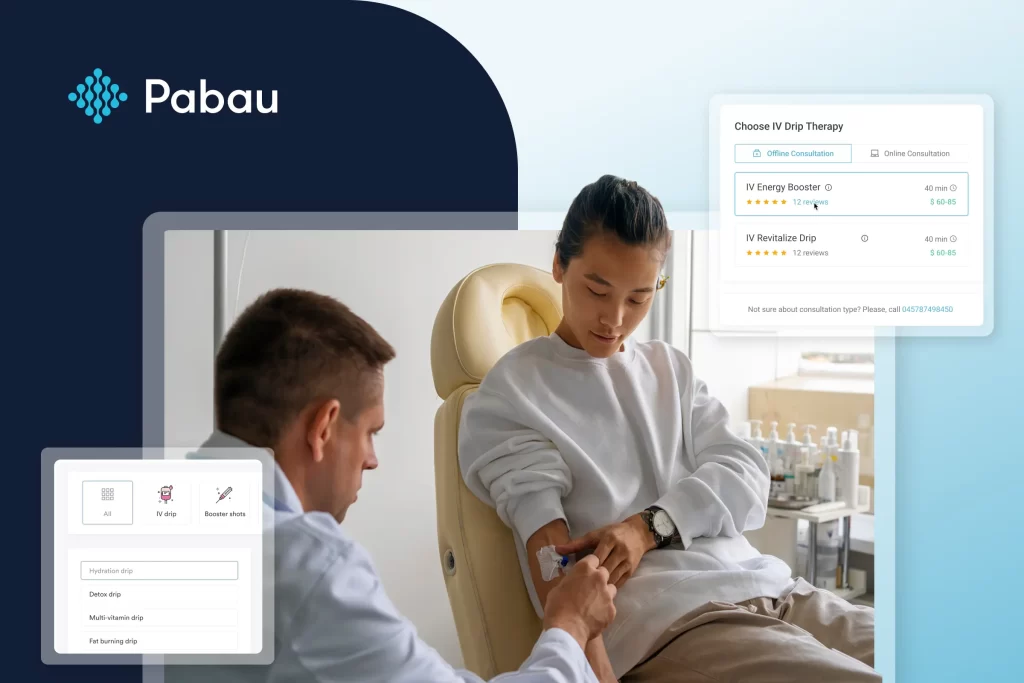If someone asked you to wash the dishes and you had a dishwasher, would you hand-wash them?
It’s a no-brainer, right? Why would you spend half an hour over the sink when you can do it with much less effort by putting them in the dishwasher?
It’s the same with artificial intelligence (AI). If you have the option, it’s reasonable to think, why wouldn’t you use it to your advantage?
AI tools are now so advanced they can help you:
- Chat with clients, book appointments, and take payments
- Safeguard against prescription errors
- Take notes while you focus on your patients
- Handle admin tasks in seconds
- Write letters, service descriptions, and more
If you’re skeptical about implementing AI to manage your practice, that’s OK. It’s a new and evolving technology, and many people are. However, in this blog we’ll explain why it can be an indispensable tool for medical practices.
The role of AI in modern practice management
AI is designed to help humans, not replace them.
While it can’t make decisions for you, it can help you in the decision-making process based on patients’ healthcare history and preferences.
We recently had a chat with Dr. Harry Singh, an AI expert, and he agrees — humans can’t be replaced, but we shouldn’t shy away from using AI either.
I always say AI doesn't replace people. It's not going to replace you, but it'll just amplify your skills and the business that you've got already.
Embrace it because it's come already, and the ones that are pioneers will be ahead of their competition."
AI also enables practices to reduce the strain of manual work by automating repetitive and time-consuming tasks — all while ensuring accuracy.
By adopting AI, practice owners can give medical staff more control over patient care, as they no longer need to focus on administrative tasks.
How is AI used to enhance practice management?
If you’re looking to optimize your practice’s operations, implementing AI tools is a smart move.
From reducing manual workloads to enhancing patient communication, AI can seamlessly integrate into every aspect of medical practice management.
Let’s explore exactly how…
1. AI-assisted documentation and patient records
One of the most time-consuming yet essential tasks for healthcare professionals is documentation, specifically patient record management.
Patient health records must always be accurate and up to date — there’s no room for error in healthcare.
🤔 Physicians often face a tough choice:
- Take notes during appointments and consultations and miss the opportunity to be as present with patients as they may like.
- Or, take notes after the consultation and risk missing important details, not being able to read handwriting, and wasting time on paperwork.
With AI, physicians no longer need to choose.
AI can automate treatment note summaries by transcribing conversations into structured records, saving practitioners time while ensuring accurate, compliant documentation.
Take Pabau’s AI Scribe tool, for example.
The AI Scribe agent takes notes during consultations without physicians lifting a finger.
It converts treatment notes, dictations, and clinical data into fully transcribed text OR concise, structured summaries. It won’t generate all the needless chit-chat – the AI extracts only the important details, making it easy to review.
As for medical terminology, it handles it like a pro.
2. Appointment scheduling and lead conversion
Who has time to wait on hold? I know I don’t — and I’m not alone. According to a survey, 19% of clients give up on a call altogether if kept waiting.
That’s why AI-driven tools are giving appointment scheduling and lead conversion a new dimension by automating the process of booking, rescheduling, and sending reminders.
This reduces the chances of no-shows and maximizes appointment availability.
Additionally, AI-powered concierges like Linda AI can assist patients with inquiries, appointment bookings, and outbound reminders around the clock, across phone, WhatsApp and email.
This seamless experience ensures that patients can schedule and manage their appointments without the need for constant human intervention, which means improving overall clinical workflow.
3. AI-powered prescription safety
When prescribing drugs, the use of AI can play a crucial role in patient safety.
AI-powered systems can cross-check patient allergies, medical histories, and contraindications (using information stored in patient records) before issuing prescriptions, minimizing the risk of potential medical errors.
However, final decisions are always made by the healthcare provider, ensuring that the human element of care remains central to the process. AI simply provides an additional layer of security and prevents human errors.
4. Service and product descriptions
While you know your services and products best, writing doesn’t come naturally to everyone.
Why spend hours crafting compelling service and product descriptions when AI can create clear, engaging, and accurate content for you?
By simply providing the product or service name (and if you like, you can provide some context on the treatment), AI can instantly generate well-crafted descriptions tailored to your practice’s brand voice.
Automating this process also helps maintain consistency in messaging and frees up staff to focus on other critical tasks.
5. AI-enhanced reputation management
Replying to reviews isn’t just polite — it shows that your business is responsive, responsible, and cares about its clients.
Online reviews play a crucial role in shaping your business’s reputation. How you respond to them tells potential patients what kind of care they can expect.
In fact, more than half of consumers (56%) say that a business’s responses to online reviews have influenced their perception of the company.
AI can help healthcare practices automate personalized review responses.
From the image above, you can see how AI can generate a thoughtful review response in moments. It’s AI generated, but personal – and of course you can edit it to sound like you before publishing. It definitely beats a blank page!
Speed is essential here, as 63% of consumers expect a response within two to seven days.
AI enables clinics to meet these expectations efficiently, helping maintain a positive and reliable reputation.
6. Patient letters and follow-ups
Effective communication with patients is a huge part of any patient journey. Delays can make people feel anxious or mean that they don’t take the appropriate next steps, which can all lead to poorer treatment outcomes.
You want to communicate quickly and efficiently.
AI can also enhance this aspect of patient care by automating the creation and delivery of personalized patient letters for pre- and post-treatment care, as well as various forms, referrals, and follow-ups.
This ensures that communication is timely, structured, and accurate, without adding to a massive administrative burden onto physicians and practitioners.
By automating these tasks, practices can ensure patients receive important communications quickly and enhance their overall experience.
Benefits of using AI in practice management
Running smoother operations in your practice no longer requires hiring more staff — it’s about implementing the right tools and knowing how to use them.
Integrating AI into practice management brings a wealth of benefits, so let’s explore some of the key advantages.
Increased efficiency
According to a report by Healthcare Dive, in a survey of over 1200 healthcare workers, over 77% reported finishing work later than desired or working after hours due to excessive documentation and note-taking.
That’s over three-quarters of respondents – no small number.
Burnout is a big challenge in healthcare, but AI can easily alleviate that burden so that workers can achieve more work-life balance.
AI technology streamlines tasks such as appointment scheduling, billing, and documentation, reducing the manual labor required to manage a practice.
This allows staff members to focus on more valuable activities and provide comprehensive patient care, while still being able to finish on time!
Higher revenue potential
AI also helps practices maximize appointment scheduling and reduce cancellations by managing the following:
- Appointment reminders, to prevent no-shows
- Emails reminding clients to rebook, to get more repeat business
- Intake forms sent automatically, to reduce appointment times
- Upselling during online booking, to increase customer spend
Adding AI into various touchpoints in the customer journey can have a cumulative impact on revenue. It also gives clinicians more time to accommodate more patients without compromising the quality of care.
And when clinics combine streamlined administrative operations and high-quality patient care, it translates into higher revenue potential.
Enhanced patient satisfaction
Patient satisfaction doesn’t just reflect the quality of treatment you provide — it begins with the very first interaction they have with you.
If you do it manually, it can be challenging (read: near on impossible) to keep track of every interaction with all the patients visiting your clinic.
However, AI can help you:
- Ensure fast response times for patient inquiries
- Facilitate personalized interactions with clients
- Provide tailored treatment recommendations by tracking patients’ personal information and treatment history
This results in a better patient experience and better patient outcomes.
However, the patient journey doesn’t stop there. Maintaining positive relationships after treatment is just as important.
AI can help you quickly generate automated communications that can be automatically sent to clients, such as post-care instructions, reminders to rebook, and even personalized birthday wishes.
All of these help patients feel valued.
Cost savings
You don’t always need to hire more staff. Using smart tools, such as AI, can mean you can reduce the need for additional support staff. Let us explain…
Hiring people is expensive. You train them up… but then they may leave, taking all the knowledge they acquired about your treatments with them.
This doesn’t happen with AI.
AI tools are also especially valuable for solo practices and small clinics that may not have the budget for extra staff. In other words, it helps you work smarter.
Want to see much time and money AI can save? Calculate it here.
Implement AI in your practice seamlessly with Pabau
Implementing AI in practice management often requires multiple tools. But relying on numerous tools can be neither efficient nor cost-effective.
A solution like Pabau — our all-in-one AI-powered practice management software — offers everything your practice needs to thrive. Combining booking and scheduling, EHR, marketing, and more, it also has a built in AI tool.
By using Echo AI, you can:
- Simplify patient care with AI-assisted treatment notes and summaries
- Prescribe medication safely and confidently
- Enhance your reputation with an AI-powered review agent
- Generate letters, forms, and descriptions with just one click
- Handle simple marketing and non-clinical tasks
The combination of Pabau and AI will undoubtedly boost your practice’s efficiency. Don’t just take our word for it — book a demo and see for yourself.

